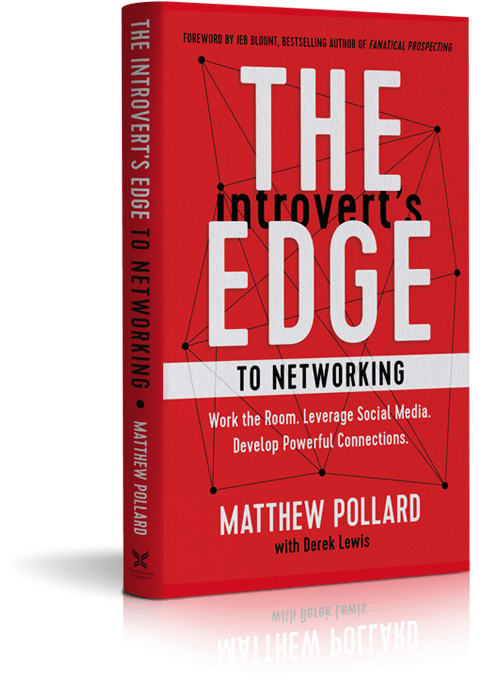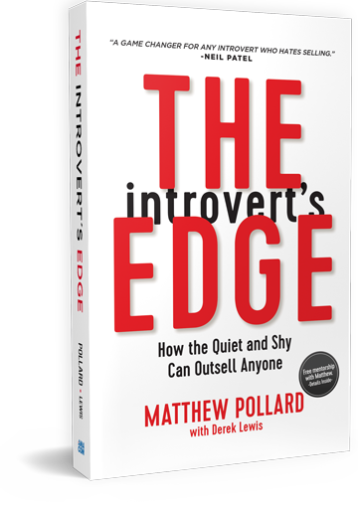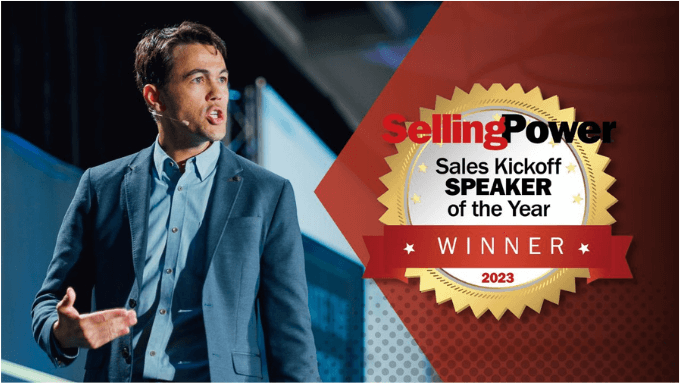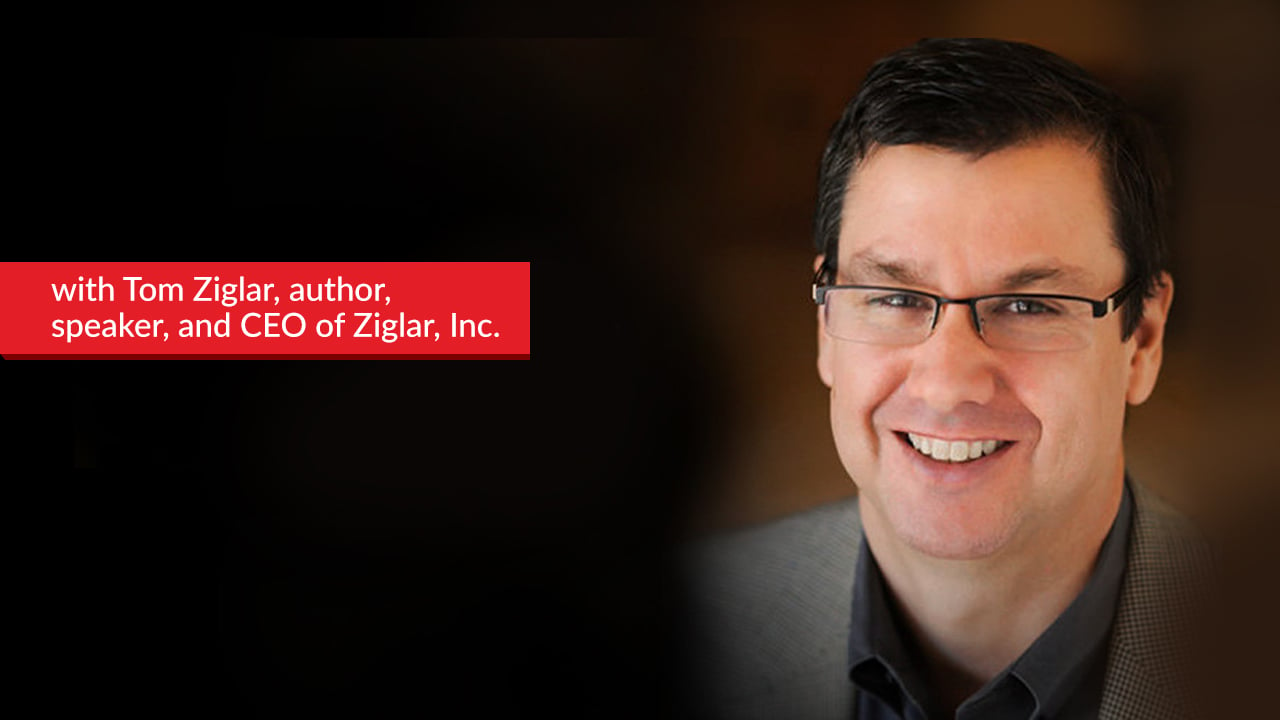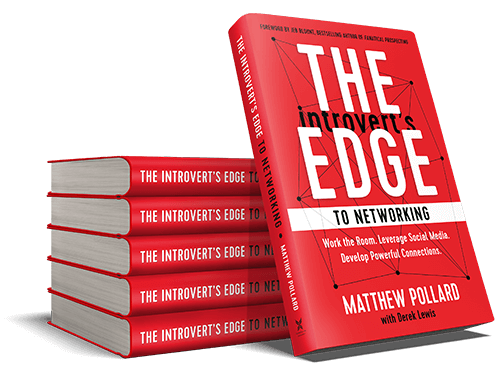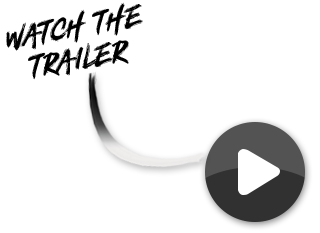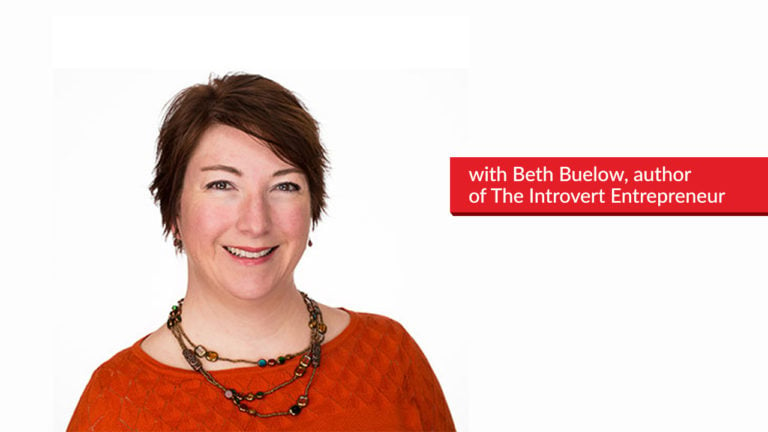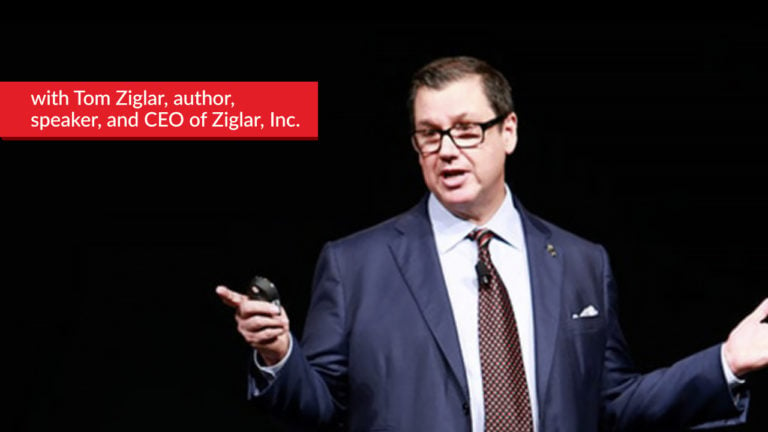Matthew: The Introvert’s Edge Podcast was designed to create a dialogue around introversion, to stimulate a discussion around our disadvantages, how we overcome those disadvantages and what we consider our introverts edge. Together. we’re finally going to confront the stigma around introversion, showing that we’re not second class citizens, we’re just different and we need to embrace that.
Sales Training as an Introvert
Hello everyone and welcome back to The Introvert’s Edge. And I have to say, I’m ecstatic to introduce you to our next guest, who is Tom Ziglar, of the famous Ziglar, Inc. Yes, Zig Ziglar’s son is actually on the podcast today because he is an introvert. And, you know, I love the fact that I’m introducing him because his father’s videos for a lot of people that know me well, I taught myself how to sell by watching YouTube videos. And a lot of Zig Ziglar’s videos are the ones that were so helpful in making me understand that sales was just a system, that if I learned it and perfected it, and offer tailored solutions, I could master sales. And it really had a huge impact on my life. It was hugely valuable, free sales training that changed my life. So Tom, I’m really ecstatic to welcome you to the show. Thanks for joining us.
Tom: You bet. Thanks for having me on, I appreciate it.
Matthew: Now, Tom, you have quite an interesting story because your father, very extroverted, one of the most well-known people in sales, and yet you’re an introvert and took hold of the company at a period of time, took charge and really have led it from strength to strength. But I’d love to hear a little bit about your story, maybe perhaps your upbringing and how you transitioned into the power CEO of Ziglar, Inc that you are today.
Tom: Well, actually dad was also an introvert. He was very outgoing and his charisma on stage, he kind of had that on button, but at home and in private settings and situations, he was quiet. You know, he was kinda always with a notebook, taking notes and working. He loved a great conversation, that was his natural state, but he also loves sharing ideas, And because he loved sharing the ideas and he had so much charisma, people would see that as just this outgoing personality type so great at building genuine relationships and authentic connections. For me, that wasn’t me. When I started work at the company and I started off in the warehouse and fulfillment, I was trying to support my golf habit. I thought I was going to be a professional golfer. And then that became clear that that wasn’t going to be the road.
And so I moved into sales. And like a lot of salespeople, I had the dreaded call reluctance. And so that’s kind of an introverted thing. I mean, you don’t want to call and interrupt somebody in the middle of their day. And luckily at our time our phone was ringing pretty good. So I didn’t mind picking up the phone because I knew somebody wanted to talk. So I moved through sales and the sales management, and then later on and really for the last I guess 23 years now, I’ve been the President and CEO of the company.
Matthew: I was actually shocked to hear that your father was an introvert. And I’ve been talking about this all the time, that people that you look at that you see as successful, we naturally assume that they’re extroverted personalities. And it’s a stigma that we have that we assume that those people, because of the way they behave on stage and on their videos that they must be extroverted, that it’s easy for them. And it’s refreshing to hear that even I would safely say somebody that’s probably the most well-known and most successful salesperson on the planet, was actually introverted himself. In regards to the call reluctance, you know, there’s a lot of mindset issues for introverts when it comes to sales and when it comes to anything. And I know that you spent a lot of time really focusing on mindset when it comes to any form of promotion and any form of speaking. And you’ve kind of mastered that for yourself. And I would really love for you to share with our audience today some of those strategies that you use to really control your mindset in regards to these activities.
Tom: Yeah. I’ll give you two. I’ll give you one I used in sales, and then what I used and in speaking. In sales, of course you know, when you’re an introvert you don’t feel necessarily comfortable just picking up the phone and calling the people that you don’t have a relationship with. What reinforces that is the idea of rejection. Because if you’re out there putting on a line, sometimes people are going to say no. And I didn’t have a mindset issue with people rejecting me. Sometimes we confuse the rejection with the offer versus the person. That really wasn’t my thing, I just didn’t like to be told no. And then I had a mindset shift as I started looking at my own performance and I realized that really every time I got a no, it was just one step closer to a yes. I had to get about six or seven no’s in order to get a yes.
And so I started keeping track and getting excited about the no’s. When people talk about sales, it’s a numbers game. But it’s funny how that little shift of, hey, I’ve got this objective that I want to reach and the more no’s I get, the faster I get them, the faster I get there. One of the things that I’ll talk to salesmen about is I’ll say, “How would you like to have a year’s worth of experience in four months time?” And of course…
Matthew: Why wouldn’t they.
Tom: Why wouldn’t you? Well, it’s real easy. Make three times as many calls. I mean, it’s really amazing to me with technology and social media and connection. A lot of times we use all those as buffers to keep us from having to do the real work, which is relationship building. So just make more calls. And it’s funny how when you make a lot of calls, you learn so much in a much shorter time frame. And if you’re always learning and you’re always applying new things and reflecting back on what you just did, then you’re raising your game just a little bit every day. So that was the first mindset shift, instead of looking at a no as a bad thing, I looked at it as just one step closer to my ultimate objective.
Questions and Active Listening in the Sales Process
Matthew: Well, I think that’s huge though, Tom. I mean, so many people are terrified of hearing the word no, terrified of getting rejected and seeing that as a reflection on themselves and taking it personally. What you literally have done is said, I need to hear the word no, because that’s how I know I’m moving forward rather than feeling like I’m being pushed back. Thank you for sharing that. That’s great. Yeah. I’d love to hear you speak of mindset.
Tom: And just one more thing on that sales thing is, when you learn to ask great questions, it takes all the pressure off of the no as well. I’ll give you one, this isn’t a Ziglar original but I listened to this recently. I can’t remember the author of it, but you’ve probably heard the kind of the trial close, which is, “Hey, on a scale of one to 10, with a 10 being you’re going to do business with us today, how close are you to a 10? And a lot of times the prospect will say, well, I’m a six or I’m a seven. And of course the natural follow on is, “Oh, okay, well, you’re a six, what do we need to do to help you move from a 6 to a 10?” I mean, that’s closing the gap. But this guy advocated a different way to ask that question. If the prospect says on a six, then you simply ask this question, “Oh, a six. Well, that’s fantastic. I’m just curious. Why did you rate it a six instead of a three or a four?”
Matthew: Just flips everything.
Tom: You flip everything. And then all of a sudden they will start telling you what they like about it.
Matthew: If they’re bringing themselves to a ten, because they’re actually talking themselves into why they’re excited.
Tom: Exactly. And for an introvert, that’s a great way to do it because you can then hone in on what they really like about it and you can reinforce that. And then what they leave out is probably what their objection that’s unstated is anyway.
Sales Performance, Public Speaking, and Mindset
Matthew: Before we jump into public speaking, let’s dive a little bit more into the sales element. Because I know a lot of introverts tend to be terrified of public speaking. We’re terrified of selling. We’re terrified of being rejected. These are two obstacles we’re really focused on, and trying to get introverts to understand that mindset shifts is the requirement and that they truly can be successful. I mean, you’re a great example of that, that you were successful in sales, you’ve been successful in public speaking. But let’s just discuss the concept of system, because you’re talking about sales strategy and doing specific things at different parts of sale. But you have lots of sales people that work within your organization. You’ve worked with lots of corporations and probably more corporations in sales than any other organization in the world. And I’m really interested in hearing from you that the top performers, the top 10%, do they tend to have planned presentations? Do they focus on every element of the sale and following a process, or do they tend to have that fly by the seat of their pants kind of perspective?
Tom: You know, it’s pretty clear the top 10% have a game plan. So they follow a system or a process. We talk about two great American baseball players. Ted Williams, probably the greatest hitter who ever lived. And he was very technical. He had a system, a process. He knew the physics of where his elbow should be and everything else. And then there’s Mickey Mantle, who’s maybe the greatest natural hitter and athlete baseball has ever seen. And all he would do is hit. When people would say, “How do you do it?” He’d say, “I don’t know. I just hit.” And so the challenge as salespeople is, organizations that usually the leadership of the management will hire in the image of themselves. And the problem is if you’ve got a fantastic sales leader who’s Mickey Mantle who just knows how to sell, but they don’t know how they do it, it’s very difficult for them to teach the others. Whereas a Ted Williams, if he would get into a batting slump, he could go through the checklist and go, “Oh, you know, my right foot is not in the right place.” And he would change his stance a little bit and he’d start hitting again. Well, at the end of their lifetime career, I think Ted Williams’ lifetime batting average was about 40 points, maybe a little bit more than that higher than Mickey Mantle’s. So natural ability is a gift, but the system will take you to a different level when you combine those together.
Matthew: Yeah. And I think that’s a really important thing to sort of focus on. Because as introverts, we gravitate to the fact that we’re disadvantaged because we don’t have that natural gift of the gab. We can’t just hit the ball, as you said, and not have to think about it. It’s very similar to what I’ve been saying, that an introvert with the right system will always beat out their extroverted counterparts hands down, because an extrovert will have their good days and their bad days based on their mood and they can’t self-diagnose what’s going wrong as easily. Where an introvert really can do that. And maybe an extrovert may start to learn a sales system, but an introvert will always be so much more diligent with it because it is the only way they sell.
Tom: I think introverts excel at sales. And the reason is, if an introvert learns five or ten key selling questions, a sales process is far better when the prospect is doing 80% of the talking. And it’s easy for an introvert to get along in that scenario. And I’ll give you a system. So here’s a mindset shift for sales reps using a system around questions. When I was in sales, a guy calls me up and he says, “Tom, I’m number one on my sales team. And this is the first time it’s ever happened. I found the secret.” And I said, “Well, what’s the secret?” He said, “It’s only six months into the year. I can’t tell you, I got to finish the year.” So he was in an organization of 150 salespeople and they sold high-end office equipment. You know, just think of a huge printer, copier, a $100,000+ machine.
And so at the end of the year, he called me back and he said, “I finished number one”, let me share with you what he did. So this is what he did. He had a three call close. The first time he went to the company, he would look at their existing machine that they were using, he would watch how they used it. He would ask questions of the staff. The second call he would invite them to their headquarters and demonstrate his machine that could do more than what they were currently using. So that was kind of the demo. The third call was the actual closing presentation where usually the CFO or VP of finance, the HR director, the office manager, whoever was in charge of that piece of equipment and maybe one or two staff who would use it, they would be in the room and he would make this presentation.
And he said, “Tom, here’s the secret.” He said, “I started getting to my appointment an hour early, instead of 30 minutes early.” And I go, really, what did you do with the extra 30 minutes? And he said, “It’s easy. In our industry we always get the same seven objections.” And he said, “Because of my previous two conversations, I knew what their top three objections were going to be.” And so he said, “What I’ve done is I have underlined the objections that I’m probably going to face”, in the book Secrets of Closing the Sale, which is one that my dad wrote. And he said, “I’ve listed on my recording, I have marked where your dad actually overcomes those objections on the recording. And so I get there 30 minutes early, an hour early now, but 30 minutes earlier than before.” And he said, “In the car, I listen to your dad overcome those objections while I read it. And I’ve prepared my presentation to overcome those objections before they even come up.”
Zig Ziglar’s #1 Sales Lesson
And so here’s the system and here’s the mindset. The number one lesson that I ever learned from dad is input. If we can control our input, we control our output. And so what this person was doing is he was saying, in order for me to be in successful in sales, I’ve got to have the right sales input. And he was doing that right before he went into the presentation where he was going to close the business. And he would listen to my father say those overcoming objection phrases. But he also had a presentation plan in the system to overcome those objections before they came up. So that year he finished number one out of 150. In the previous five years, he’d always finished middle of the pack, 65 or 70 out of 150. The only difference was listening to and reading how to overcome that right before he went in. That’s putting the right information into your mind, which gives you that right perspective, that right attitude. In other words, he was mine modeling. He was ready for that before it happened.
Matthew: Look, I think that’s hugely valuable because what you’re really saying is, introverted salespeople can increase our success rates in sales by really focusing in on our script and our stories and the elements that we know that we’re going to be presented with when we get to that sale. Those are critical, mabye the best sales tips. So really coming back to an introvert’s key advantage in the sales process is our script and it is preparation.
Tom: What we put in before. This is anybody, but an introvert especially, when you have that input and then you get into the environment right away or where you get to use it, your mind actually knows what to do. And being an introvert myself and kind of a brain nerd, that’s the way the brain works. If you can mental model the presentation before it happens, no matter what happens in that presentation, what kind of questions you get, you are more equipped to handle it. Plus your confidence is so much higher.
Matthew: Yeah. I mean, it’s like doing it for the second time. The first time you do something it’s always going to feel uncomfortable. The second time is easy. And if you’ve created that in your mind the first time before you even go in, you’re really just doing it again with the customer. And I think that’s hugely powerful and I’m 100% with you. For me, I think an introvert has a disadvantage if they don’t prepare, and if they don’t have a system they’re horribly disadvantaged. I guess that’s why we have this whole thought around having to have the gift of the gab. Because without a system, without preparation, we kind of suck at sales. But with a system and doing that preparation, we’re kind of dangerous because we can deliver exactly the same thing all the time.
And because of that, it’s not defined by mood. So while I’m sure – going back to your baseball analogy – the natural would have hit the ball on the good days better than the non-natural example. But averaging it over a career, the non-natural one hands down. And I see the exact same thing happen with sales efforts, sales calls. So I think that’s hugely valuable.
Tom, I’ve got so many more questions I want to ask you because I know that you had an interesting trajectory into speaking. And while you were kind of continually pushed into and suggested that you should speak, and then now you sell from stage. So I really want to go into all of the strategies that you use for that and your mindset strategies in regards to public speaking. But we’re at our time for session one. So we might pick that up in session two. So I really appreciate you coming in and sharing so much value with our listeners today and watchers today.
Tom: All right. My pleasure.
Matthew: So for everybody that’s enjoying this segment, please make sure you go to theintrovertsedge.com/Tom, so you can hear the second part of our public speaking and sales conversations. And if you’re really enjoying it, I really request that you please go to The Introvert’s Edge on iTunes, click subscribe, and post a review to help more and more introverts get this amazing value. Because for us, the more introverts that hear this information, the more introverts will be able to be motivated to be successful in their business and in their lives. So thank you again for joining us. And I look forward to seeing you in the next episode. Cheers.







